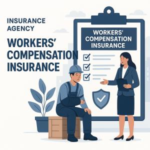
Using Video Evidence to Defend Security Guard Workers’ Comp Claims
August 10, 2025
Small Home Healthcare Companies: Cheap Workers’ Comp Insurance—Fact or Fiction?
August 10, 2025In teh highly regulated landscape of security services, maintaining thorough workers’ compensation coverage is crucial for Georgia security guard companies. As renewal periods approach, companies must navigate a complex array of requirements and documentation to ensure uninterrupted protection for their workforce. This article provides a detailed workers’ comp renewal checklist tailored specifically for security guard firms operating in Georgia,offering essential guidance to streamline the process,maintain compliance,and safeguard both employees and business interests.
table of Contents
- Workers Compensation Policy Review and Coverage Verification
- Risk Assessment and Workplace Safety Enhancements
- Employee Documentation and Claims History Evaluation
- Compliance with Georgia State Regulations and Reporting Requirements
- Q&A
- In Summary
Workers Compensation Policy Review and Coverage Verification
Reviewing your workers’ compensation policy diligently is critical to safeguarding your security guards and your company’s financial health. Ensure that all employee classifications and payroll estimates accurately reflect the current workforce distribution to avoid costly audits or coverage gaps. Additionally, verify the policy limits and exclusions align with your operational risks, especially given the unique hazards security personnel face on the job.This proactive approach helps maintain compliance with Georgia state regulations while securing optimal protection.
Its equally vital to cross-check endorsements and riders attached to your policy to confirm they are still applicable and beneficial. Consider the following checklist for an effective policy review:
- Verify employee classification codes and adjust for changes in roles or headcount.
- Confirm payroll accuracy for premium calculation purposes.
- Review coverage limits to ensure they meet current exposure levels.
- Assess policy exclusions and endorsements for alignment with your company’s operational scope.
- Evaluate claims history and discuss potential risk mitigation strategies with your insurer.
| Coverage Aspect | Key Checkpoints | Recommended Action |
|---|---|---|
| Employee Classifications | Accuracy & updates | Verify and correct |
| Payroll Estimates | Consistency with records | Adjust for fluctuations |
| Policy Limits | Coverage vs. risk exposure | Increase if necessary |
| endorsements & Riders | Relevance to operations | Remove or add as needed |
| Claims History | Frequency & severity | Implement preventative measures |
Risk Assessment and Workplace Safety Enhancements
Conducting a thorough evaluation of potential hazards is crucial for mitigating claims and maintaining a safe working environment in the security sector.This involves detailing the specific risks associated with different guard duties, such as patrolling, access control, and emergency response. Implementing tailored safeguards like advanced training in conflict de-escalation, proper use of personal protective equipment (PPE), and establishing clear dialog protocols significantly reduce the likelihood of workplace injuries and subsequent workers’ compensation claims.
Proactive safety enhancements not only secure employees but also contribute positively to insurance premium negotiations. To streamline this, security firms should consider an internal audit checklist that includes:
- Identification and documentation of workplace hazards
- Regular safety training attendance and certifications
- Incident and near-miss reporting procedures
- Routine maintenance and inspection of security equipment
| Risk Factor | Suggested Safety Measure | Impact Level |
|---|---|---|
| Unauthorized Access | Enhanced background screening | high |
| Physical Assault | Self-defense training | High |
| Slip/Trip Hazards | regular site inspections | Medium |
| Fatigue | Optimized shift scheduling | Medium |
Employee Documentation and Claims History Evaluation
Thoroughly reviewing your employees’ documentation and claims history is a critical step in securing a competitive workers’ compensation renewal. Start by verifying that all personnel files are up-to-date, including employment dates, job classifications, and any safety training records. Accurate documentation ensures that your security staff is categorized correctly, which directly impacts your premium rates. Additionally, carefully analyze past claims to identify recurring patterns or frequent injuries, as these may signal risks that require targeted safety interventions.
Pay attention to the following key areas during your evaluation:
- Claims Frequency: Number of claims filed within the policy period
- Claim Severity: The financial impact and duration of each claim
- Return-to-Work Programs: Effectiveness in reducing lost time
- Employee Turnover: Impact on claims continuity and experiance rating
| Claim Type | Frequency | Average Cost | prevention Strategy |
|---|---|---|---|
| Slip and Fall | 12 | $4,200 | Improved footwear policies |
| Overexertion | 8 | $3,100 | Ergonomic training |
| Assault-Related | 5 | $6,500 | Enhanced de-escalation training |
Compliance with Georgia State Regulations and Reporting Requirements
Adhering to state-specific mandates is critical for security guard companies operating within Georgia. Ensuring compliance means maintaining meticulous records of all payroll reports, injury logs, and premium calculations, as required by the Georgia State Board of Workers’ Compensation. Staying updated with regulatory changes guarantees that your company not only avoids penalties but also fosters trust with insurers and clients alike. Key compliance practices include:
- Timely submission of annual payroll audits and injury reports.
- Accuracy in classification of employee job roles to determine appropriate premium rates.
- Consistent communication with your insurance provider regarding any changes in workforce or operations.
| Compliance aspect | Requirement | Frequency |
|---|---|---|
| Payroll Reporting | Submit detailed reports on all wage payments | Annually |
| Injury Documentation | Record and report workplace incidents promptly | as incurred |
| Classification Audit | Verify employee classifications for premium accuracy | During renewal |
Implementing these protocols not only ensures regulatory adherence but also optimizes your workers’ compensation renewal process by minimizing auditing discrepancies and unexpected premium increases. Partnering with a knowledgeable insurance consultant familiar with Georgia’s regulatory environment can provide added assurance that all reporting obligations are met seamlessly, helping your security firm maintain uninterrupted coverage and operational compliance.
Q&A
Q&A: Workers’ Comp Renewal Checklist for Georgia Security Guard Companies
Q1: Why is it critically important for Georgia security guard companies to have a workers’ comp renewal checklist?
A1: A workers’ comp renewal checklist ensures that security guard companies maintain continuous coverage, comply with state regulations, manage risks effectively, and avoid costly penalties or lapses in insurance. it promotes a streamlined renewal process and helps identify necessary updates or changes in policy terms.
Q2: When should Georgia security guard companies begin preparing for their workers’ comp insurance renewal?
A2: Companies should start preparations at least 60 to 90 days before the policy expiration. This timeframe allows for reviewing current coverage, gathering updated employee payroll and classification data, comparing rates from different insurers, and addressing any claims or safety program updates.
Q3: What employee facts must be verified before renewing workers’ compensation insurance?
A3: Accurate and up-to-date employee payroll records, job classifications, and hours worked should be verified. Since rates are heavily influenced by payroll and specific job duties, ensuring accuracy prevents underpayment or overpayment of premiums and helps insurers assess risk properly.
Q4: How can Georgia security guard companies reduce their workers’ comp premiums during renewal?
A4: Companies can reduce premiums by implementing strong workplace safety programs, maintaining thorough injury and incident reports, providing regular employee training, and proactively managing claims. Additionally, reviewing and correcting employee job classifications can impact pricing favorably.
Q5: What documentation should be gathered as part of the renewal process?
A5: Important documents include prior year’s payroll summaries, claims history reports, OSHA logs, current safety program manuals, proof of employee training, and any prior audits. Having these readily available facilitates insurer evaluations and renewals.Q6: Are there any Georgia-specific regulations to consider during workers’ comp renewal?
A6: Yes. Georgia requires all employers with three or more employees to carry workers’ compensation insurance, with some exceptions. Security guard companies must ensure compliance with the state’s statutory requirements and update any policy endorsements unique to the security industry.
Q7: How can a security guard company handle claims discovered during the renewal review?
A7: Address outstanding claims proactively by working closely with claims adjusters, providing complete documentation, and implementing corrective actions to prevent recurrence. Clear claims management supports better renewal terms and insurer relationships.
Q8: Should companies consider changing their insurance provider during renewal?
A8: It is indeed advisable to compare quotes and coverage options from multiple insurers annually. This competitive approach may yield more favorable rates or improved coverage tailored to the security guard industry’s risks.
Q9: What role does risk management play in the renewal process?
A9: Effective risk management minimizes workplace injuries and claims frequency, directly influencing premium costs and renewal terms. Regular safety audits, updated protocols, and employee engagement in safety initiatives strengthen the company’s risk profile.
Q10: What are the consequences of failing to renew workers’ comp insurance timely in Georgia?
A10: Failure to renew in a timely manner can result in legal penalties, fines, exposure to liability for workplace injuries, and potential suspension of business licenses. It also puts employees at risk and damages the company’s professional reputation.
this checklist-oriented Q&A provides Georgia security guard companies with a focused guide to efficiently managing their workers’ compensation renewal, ensuring compliance, controlling costs, and maintaining workforce protection.
In summary
maintaining a comprehensive workers’ compensation renewal checklist is essential for Georgia security guard companies aiming to ensure continuous coverage, compliance, and cost efficiency. By systematically reviewing policy details, verifying employee classifications, updating payroll information, and addressing any workplace safety concerns, companies can mitigate risks and streamline the renewal process.Staying proactive not only protects your workforce but also enhances your institution’s financial stability and reputation in a competitive industry. Prioritize these steps as part of your annual routine to secure the best outcomes for your business and your employees.
“This content was generated with the assistance of artificial intelligence. While we strive for accuracy, AI-generated content may not always reflect the most current information or professional advice. Users are encouraged to independently verify critical information and, where appropriate, consult with qualified professionals, lawyers, state statutes and regulations & NCCI rules & manuals before making decisions based on this content.

